New Jersey Butterfly Club
A chapter of the North American Butterfly Association (NABA)
Mourning Cloak
Nymphalis antiopa
Identification: Medium—3.0". Above: FW and HW very dark, velvety brown with wide, pale-yellow border on both wings, and a row of small blue spots inside the yellow border. Below: Finely striated dark brown, with grayish-yellow border along both wings. Distinctive flap-and-glide flight.
NJ Status and Distribution: Resident. Fairly common and widespread throughout.

Habitat: Deciduous woodland. Often encountered along trails and on bare ground and dirt roads.
Flight Period: One brood. In North Jersey overwintering adults emerge in March (sometimes in February), mate, lay eggs, and die. Their offspring emerge in early July and fly into December, sometimes with a pause for aestivation in the heat of summer. In South Jersey, may be seen every month of the year. Extreme dates: North Jersey 2/8—12/16; South Jersey 1/4—12/25.
Caterpillar Food Plants: A wide variety of broadleaf trees, including willows (Salix); aspens, poplars, and cottonwoods (Populus); elms (Ulmus); birches (Betula); and hackberry (Celtis).
Overwintering Stage: Adult.
Good Locations: Delaware Water Gap NRA, Wildcat Ridge WMA, Whittingham WMA, Kittatinny Valley SP, Belleplain SF.
Comments: After a long winter of butterfly fasting that North Jersey butterfliers have to endure, it is exciting to see the first Mourning Cloak flapping and gliding along a forest trail. This and Eastern Comma are usually the first species seen in North Jersey.
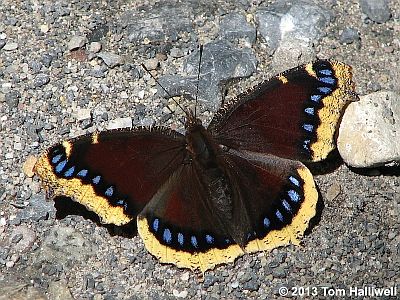
Crater Lake Rd., Sussex Co., NJ, 7/12/07.
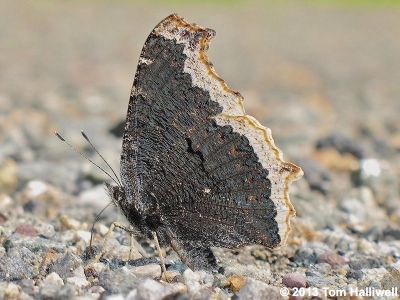
Wildcat Ridge WMA, Morris Co., NJ, 6/30/06.
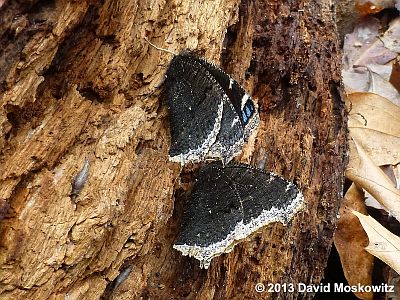
Hibernating in rotten log, East Brunswick, Middlesex Co., NJ, 12/8/13.
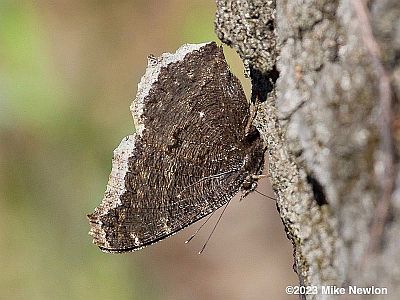
Imbibing sap, Jenny Jump SF, Warren Co., NJ, 5/3/14.
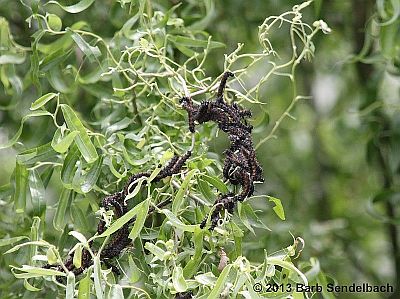
Caterpillars on Corkscrew Willow (Salix matsudana).
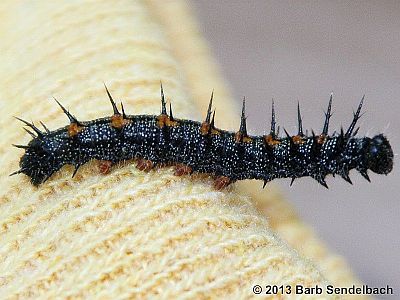
Caterpillar.
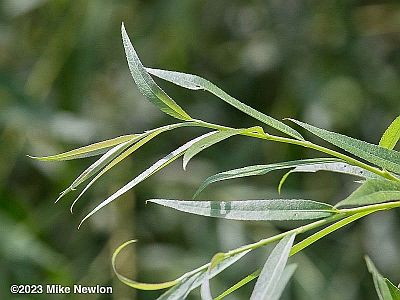
Black Willow (S. nigra) is a caterpillar food plant for Mourning Cloak as well as Compton Tortoiseshell, Red-spotted Purple, and Viceroy.